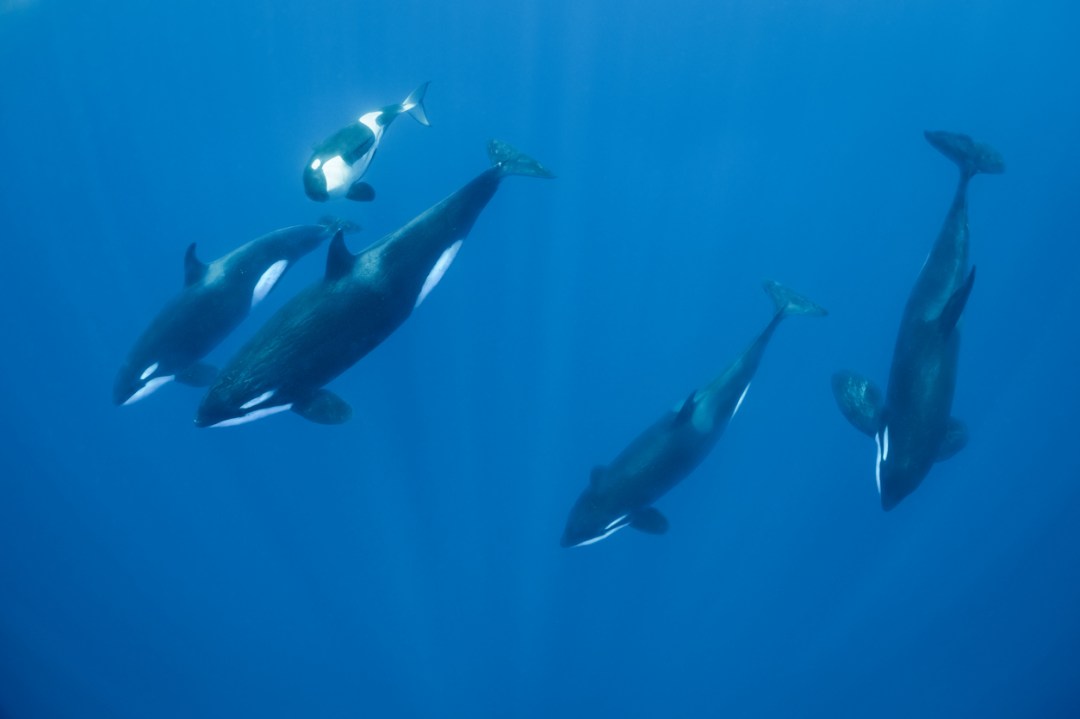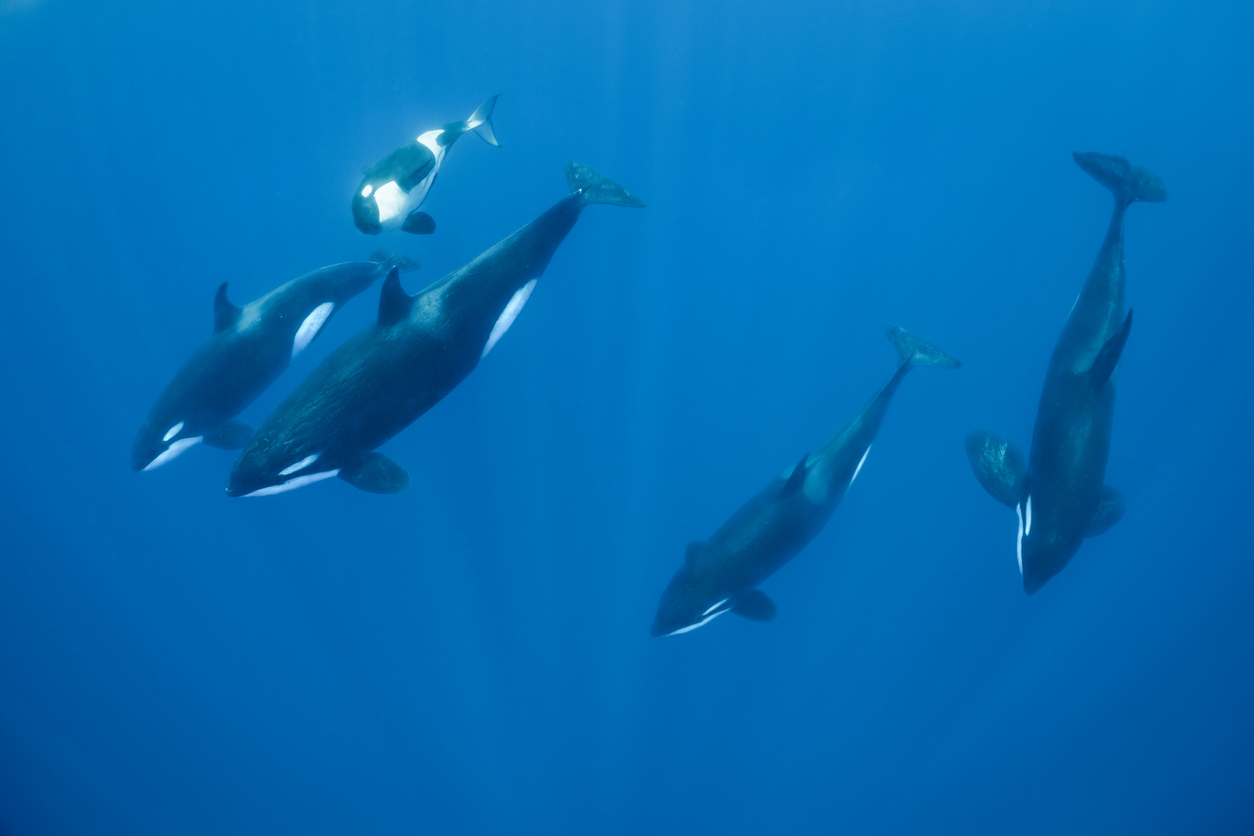Orcas – killer whales no less – are on the attack. They have declared war on humanity. They are systematically destroying boats in uncannily coordinated attacks. They are taking revenge because White Gladis, an orca matriarch, was traumatised after being hit by a ship. The attacks began in the seas off Spain and Portugal but now they have spread to the North Sea. Is anyone safe?
It’s clear that there are two stories being told at the same time. The first concerns the ethology (study of animal behaviour) of the odontocetes or toothed whales (including dolphins). The second is about the relationship between humans and nature. The two tales are perhaps equally interesting.
Certainly if they wanted to do serious damage to a small boat they have the scope for serious escalation
In the last fortnight there have been two attacks – no, let’s use a neutral word here – ‘interactions’ between yachts and orcas in the six-month long endurance event the Ocean Race. Team JAJO reported a pod of orcas ramming the boat and biting its rudders. The crew took down sails, as a result slowed right down, and the orcas, apparently losing interest, moved on.
Another boat was repeatedly rammed by another or perhaps the same pod. In another incident involving a catamaran near Gibraltar, orcas tore off the rudder. There have been reports of 250 boats being damaged off the Iberian coast since 2020, including three sinkings.
Then last week Wim Rutten was sailing from Shetland to Bergen, as 72-year-olds do, and reported an alarming experience with orcas, one in which the boat was relatively undamaged, but leaving its skipper with a tale to tell at journey’s end. This has been interpreted as evidence of monsters from the deep abandoning their traditional way of life to wage war on humanity.
I have come across the same story many times. For a start, it’s the heart of the Anglo-Saxon epic Beowulf. Having slain the monster Grendel the hero must take on Grendel’s still more fearsome mother: plunging beneath the surface of the lake in which she lives. The story is retold with a different species of odontocete in Moby Dick, for the great white whale is of course a sperm whale, for all that he is also understood as God, nature, fate, evil or the faceless malevolence of the universe.
And just when you thought it was safe to get back into the water, Steven Spielberg brought us Jaws. The monster here is a great white shark, one that has acquired a taste for humans. The film cannily exploited our atavistic terror of hidden monsters seeking vengeance, on behalf of all nature, on the planet’s dominant species. In 2022 there were a reported 57 unprovoked shark attacks on humans resulting in five fatalities; in that time humans killed approximately 100 million sharks.
Orcas are just as well armed as sharks and in human fantasy they offer something more than mindless malevolence – and that’s mindful malevolence. The comparison between them is made in The Cultural Lives of Whales and Dolphins by Hal Whitehead and Luke Rendell: ‘Perhaps the essential difference… is a highly sophisticated communal intelligence…. they learn from each other and work with each other.’ The clever team-handed velociraptors of Jurassic Park are even more alarming than T. rex.
Orcas are large dolphins rather than smaller versions of the great whales, which are classified as mysticetes and have baleen plates rather than teeth. The nature and degree of orca intelligence is considerable but hard to assess: you can’t do laboratory experiments on a pod of orcas. It’s not easy even to observe them: they are fast, highly mobile and live most of their lives underwater. They are by definition creatures of mystery.
What we actually know of orcas is astonishing enough: they have great comms, superb team-work, and deep ties of relatedness and culture. All intelligent creatures play when they have the leisure to do so, and that’s the most likely explanation for the interaction with boats: orcas, well-fed and in a sunny temper, are having a spot of fun in their massive way and the rudders are perhaps the most interesting bits of boat.
Certainly if they wanted to do serious damage to a small boat they have the scope for serious escalation: they are physically capable of leaping from the water and crash-landing on deck and a pod could do this at the same time. If they were seeking revenge, rudder-nibbling seems a rather tame option.
But their intelligence and memory are considerable and still largely unexplored, and it would be foolish to underrate their capacity for revenge, or for anything else. The only issue I have with this hypothesis is this: if they are truly seeking revenge on humanity for the wrongs done to orcas, to odontocetes, to all whales and dolphins, to all the creatures of the seas and for that matter, to all nature – what took them so long?







Comments